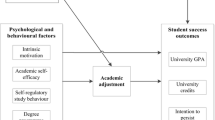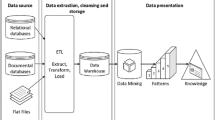Abstract
The quality of degree programs offered off-campus, particularly on military bases, has become an issue affecting many institutions of higher education. This study asked the question: Do students in off-campus programs perform as well as students in on-campus programs? As a basis for comparison, only courses taught on- and off-campus by the same instructor were chosen. Six courses, taught 37 times, by ten instructors, met these criteria. The subjects included the 649 undergraduate students from Southern Illinois University-Carbondale who received letter grades in these courses between 1975 and 1977. As a measure of performance, the grades of on- and off-campus students were compared by means of at-test. The mean grade of off-campus students (3.34) was not significantly different (at the .01 level) from that of on-campus students (3.29). As a control, faculty were interviewed to determine the equivalence in content and rigor of courses they taught in both settings. Faculty generally responded that their on- and off-campus courses were equivalent in content and rigor, supporting the use of grades as a measure of student performance. These results indicate that not only do faculty maintain their standards while teaching off-campus, but that the academic performance of off-campus students equals that of on-campus students.
Similar content being viewed by others
References
Ashworth, K. H. and Lindley, W. C., The disgrace of military base programs,Change, Feb. 1977, pp. 8, 61.
Astin, A. Measuring the outcomes of higher education. In H. Bowen (ed.)Evaluating institutions for accountability. San Francisco: Jossey-Bass, 1974.
Dalton, S. A decline in the predictive validity of the SAT and high school achievement.Educational and Psychology Measurement 36:445–448, 1976.
Hartnett, R. T. Nontraditional study: An overview. In S. R. Gold and K. P. Cross (eds.)Explorations in non-traditional study, San Francisco: Jossey-Bass, 1972.
Holen, M. C. and Newhouse, R. C. Student self-prediction of academic achievement.Journal of Educational Research, 69: 219–220, 1976.
Jacobson, R. L. Stricter regulations sought for off-campus programs.The Chronicle of Higher Education, 1 Aug. 1977, p. 7.
Stricter regulations sought for off-campus programs.The Chronicle of Higher Education, 1 Aug. 1977, p. 7.
Milton. O.Alternatives to the traditional: How professors teach and how students learn, San Francisco: Jossey-Bass, 1972.
Nelson, F. A. Has the time gone for an external degree?Journal of Higher Education 45: 174–183, 1974.
Off-campus programs drawing complaints.The Chronicle of Higher Education, 1 Nov. 1976, p. 1.
Reed, J. G. and Murphy, M. T. Academic performance of mature adults and veterans,College and University, 50: 129–144, 1975.
Waters, L. K. and Waters, C. W. Two measures of resultant achievement motivation: Their relationships to each other and to academic performance for three samples of college males.Educational and Psychological Measurement, 36: 477–481, 1976.
Author information
Authors and Affiliations
Rights and permissions
About this article
Cite this article
Walsh, E.M., Novick, J. & Andrechak, M. Student performance in off-campus programs. Innov High Educ 3, 230–241 (1979). https://doi.org/10.1007/BF03028203
Issue Date:
DOI: https://doi.org/10.1007/BF03028203




